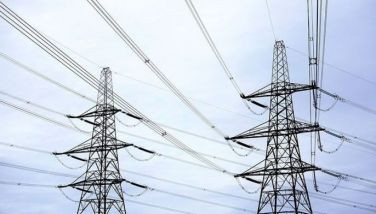Social cost of Philippine corruption
With the start of the filing of the Certificates of Candidacy last week for the May 2025 election, it may be timely to talk again about the effects of corruption in the Philippines to remind us to elect the least corrupt officials. We covered in last week’s column the negative economic effects of corruption, in terms of wasted resources, the lowering of GDP growth, and the misdistribution of wealth/resources among the people. Now, we discuss the social cost of corruption which are worse and longer lasting to our country and as a nation.
Moral and ethical values were/are not original religious ideas/ideals, nor did they emanate from religious leaders. Moral norms and ethical behavior came about to establish order in society. When man or any creature was alone, he can do what he wants and it would not affect anybody else, but when man got together with others, like a mate and children, and relatives/neighbors and a community, certain rules of behavior were agreed upon for the orderly relations between and among them. These were/are the moral and ethical standards that wise men in those times codified into the Golden Rule, the 10 Commandments, the teachings of Buddha and Confucius, the Koran and the Bible. Then, many of these rules were included in the constitutions and the laws of many countries. Corruption is one of the moral norms that is prohibited and to be avoided for the orderly and peaceful co-existence of people in a society, and every government enacted laws against corruption.
The biggest social cost of corruption is the injustice it displays and promotes among the people. It is a violation of the fairness principle and distorts the reward and punishment concept of societies, since it gives someone benefits which he did not work for or deserve. As corrupt practices are done by powerful persons, many of them politicians and government officials, the fruits of the corruption are displayed/seen and set as bad examples. These are tolerated and followed by others, weakening the moral fiber of individuals and society, cascading to the children and future generations
Corruption eventually infects/contaminates other moral values against killing, stealing, respect for authority and religious beliefs, as the corrupt seems to get away unpunished. While religions and other isms developed the concepts of karma, hell on earth, and heaven or hell in the afterlife, some will risk for the worldly consequences of their corruption, while some do not believe in heaven or hell.
Corruption eventually destroys governments, as it can only survive if laws and rules are followed and respected by the majority of the people. It does not matter if the government is autocratic or democratic; as soon as enough of the population disobeys the laws and rules of conduct, governments will fall in elections or revolutions.
While corruption cannot be totally eliminated, an overview and analyses of many countries in the world would show the inverse correlation between corruption and the degree of stability and progress of these countries. The Scandinavian countries and Singapore, with low levels of corruption are the most progressive and stable. The US, Japan, and western European countries would be in the second rung, and many third-world countries in the third and fourth rung, including the Philippines.
The unraveling of the corruption in the last administration and those still ongoing, is another wake-up call for Filipinos to continue to be vigilant and expose corruption in all levels. The exposé/testimony of the DepEd undersecretary and the revelations in the ongoing quad committee hearings on the POGOs, the Immigration bureau, and the fake birth certificates are in the right direction. Maybe, we should also not vote for family dynasties as they will compound the corruption.
- Latest




















